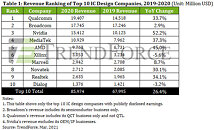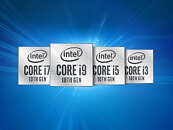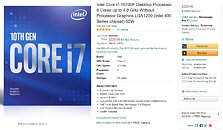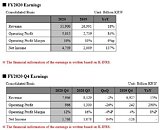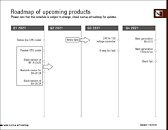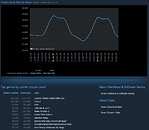
Once Again, NVIDIA CEO Jensen Huang to Showcase What's Been Cooking for GTC - From His Kitchen
Remember that time when NVIDIA CEO Jensen Huang pulled the company's HGX system (based on Ampere GA100) out of his own oven? Well, it seems we might be looking at something similar come GTC, which is set for April 12th. The event will again take place solely via online transmissions and announcements due to the still heavily-grassing COVID-19 pandemic, and NVIDIA teased a new kick-off presentation from its CEO - from his kitchen.
NVIDIA has usually taken GTC as an opportunity to showcase products not for the consumer segment, however, so temper your expectations. You should also likely temper your expectations regarding Huang taking enough RTX 30-series graphics cards form his oven to satisfy the incredible demand and stock issues we've been seeing with NVIDIA's latest and greatest. What we could be looking for (as an appetizer to this year's over 1500 presentations) are products focused on the professional computing markets, from quantum computing to AI, passing through RTX Ampere accelerators for professionals, NVIDIA Drive products, as well as Jetson announcements. NVIDIA did warn some surprises might be in store, but again, this doesn't mean these are surprises aimed at consumer gaming products. Catch up on NVIDIA's official announcement and a previously-released GTC retrospective video after the break.
NVIDIA has usually taken GTC as an opportunity to showcase products not for the consumer segment, however, so temper your expectations. You should also likely temper your expectations regarding Huang taking enough RTX 30-series graphics cards form his oven to satisfy the incredible demand and stock issues we've been seeing with NVIDIA's latest and greatest. What we could be looking for (as an appetizer to this year's over 1500 presentations) are products focused on the professional computing markets, from quantum computing to AI, passing through RTX Ampere accelerators for professionals, NVIDIA Drive products, as well as Jetson announcements. NVIDIA did warn some surprises might be in store, but again, this doesn't mean these are surprises aimed at consumer gaming products. Catch up on NVIDIA's official announcement and a previously-released GTC retrospective video after the break.




